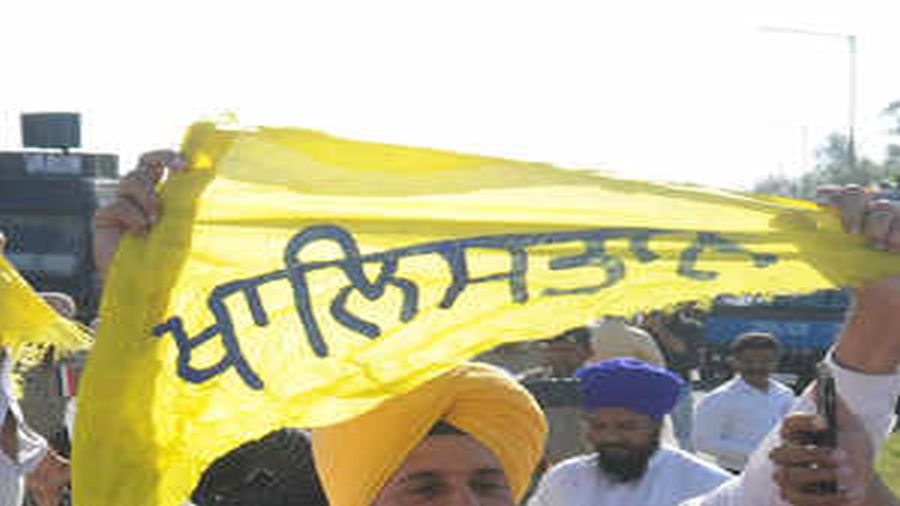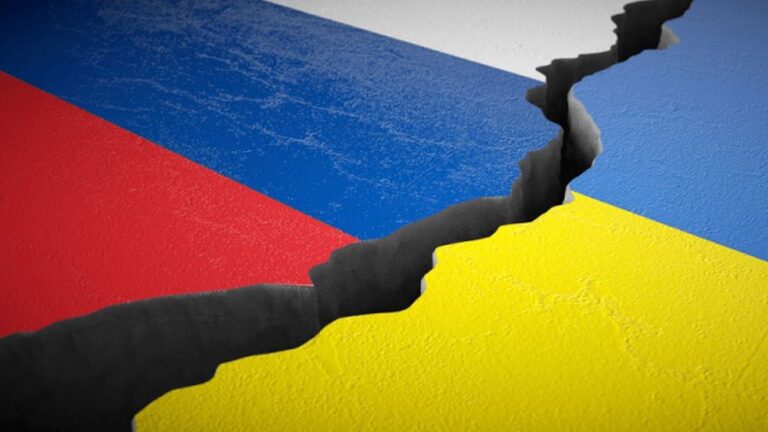Sikh Diaspora-Revival of the Khalistan Independence Movement
After the brutal operation Blue Star launched by the Indian Army in 1984 at highly sacred Sikh religious place-the Golden Temple complex (Harmandir Sahib) in Amritsar, Punjab where their spiritual leader Sant Jarnail Singh Bhindranwale had taken shelter, the international community had thought that perhaps Sikhs have become lethargic in connection with their demand for an independent state in the Indian Punjab, named Khalistan.
But, participation of almost 208,000 Sikhs in the Khalistan referendums held in the recent years in four countries—the huge number of Sikhs who voted in favour of an independent Khalistan reflected that their demand for and independent home land is gradually being accepted globally.
In this regard, some developments and moves show the Sikh diaspora-revival of the Khalistan movement which needs analysis.
On March 18 this year, prior to the launching of crackdown by the Indian police and paramilitary forces, section-144 was imposed, and mobile phone service was suspended in Sri Muktsar Sahib and Fazilka districts of the Indian Punjab.
Ever since Amritpal Singh Sandhu took over as the head of ‘Waris Punjab De’ after the death of its founder head named Deep Sidhu, state machinery started harassing him by cancelling arms licences of his guards and detaining his friends.
Police arrested a large number of Sikhs including members of ‘Waris Punjab De’ and Amritpal Singh.
Sikh diaspora has expressed serious concerns over this crackdown harassing the Sikh population in the Indian Punjab, elsewhere in India, including those living abroad.
Randeep Sarai, Member of Parliament in Canada said on Twitter:
“Deeply concerned about news reports coming out of Punjab, India. The suspension of internet services and restricted gatherings of more than 4 people in some areas.”
Gagmeet Singh, Party leader of the New Democratic Party in Canada, stated:
“I am deeply concerned by reports that India has suspended civil liberties and imposed an internet blackout throughout the state of Punjab…These draconian measures are unsettling for many given their historical use to execute extrajudicial killings and enforced disappearances during the 1984 Sikh Genocide…I am calling on [Canadian Prime Minister] Justin Trudeau and the Liberal government to immediately contact their Indian counterparts to express concern regarding the suspension of civil liberties and the safety of Canadians abroad.”
The World Sikh Organization of Canada (WSO) condemned the security operations in Punjab to arrest Sikh leader, Bhai Amritpal Singh. Indian authorities have announced the mass suspension of internet services across Punjab citing a threat to “public order by incitement to violence. State-wide cordon and search operations are currently underway across Punjab”.
In a press release, WSO also said:
“We are also deeply concerned that the confusion around Bhai Amritpal Singh’s detention…may be used to orchestrate a false encounter and facilitate his extrajudicial murder…This tactic was commonly used by the Punjab police through the 80’s and 90’s to eliminate Sikh activists. We call on the Canadian Government to demand accountability from India and call for the immediate restoration of civil rights and internet services in Punjab.”
Tim S. Uppal Canadian Conservative Party deputy leader, Gurratan Singh, former Member of the Provincial Parliament, Author and poet Rupi Kaur as well as renowned Sikh persons living in Canada expressed serious concern over crackdown against Sikhs in India-gross human rights violations, remarking:
“Very concerned about reports coming out of Punjab, India…We are closely following the situation…mass arrests of Sikh activists…shut down of internet and text… crackdown on public gatherings…mass censorship of media. Let the Indian Government know that we condemn this repression. The whole world is watching”.
However, the targeting of Sikh youth in Punjab is once again causing huge concerns in the Sikh community across the world. In this context, Punjab Chief Minister Bhagwant Mann has been urged to stop deployment of army or paramilitary services.
Meanwhile, Sikh diaspora took to streets in London and gathered at Indian High Commission to deliver the note of protest to Indian envoy. Thus, one of the enraged Sikh pulled down Indian flag and replaced it with that of Khalistan. Indian government served a note of protest to UK High Commissioner in New Delhi.
In this connection, before Indian Prime Minister Narendar Modi spoke to British Prime Minister Rishi Sunak, the Indian authorities called on the UK government to monitor groups like Sikhs For Justice (SFJ) who have been blamed by Indian for mobilising and radicalising thousands of Sikhs through Khalistan referendum voting across the western countries.
Indian police removed temporary security barricades outside the British High Commission in New Delhi.
It is mentionable that EU Sikhs held an anti-India protest demonstration in front of the Brussels Parliament in Brussels on March 27, 2023, calling on European Commission to challenge India’s massive security crackdown. The speakers on the occasion strongly denounced the Modi government for harassing the Sikh community in India.

Similarly, the California state assembly passed a resolution on April 10, this year, which said that the Sikh community in the US had not yet recovered from the physical and psychological trauma of the riots, urging the US Congress to formally recognise the 1984 anti-Sikh riots in India as ‘genocide’, and to condemn the violence.
Police have accused Amritpal Singh, a 30-year-old preacher, and his aides of creating discord in the state, which is still haunted by the memories of an armed insurgency in the 1980s for an independent Sikh state called Khalistan. The insurgency had prompted a controversial military operation by the Indian government in 1984 which killed thousands of people.
Singh, who has said that he supports the Khalistan movement, captured national headlines in February, this year. He emerged in 2022 in Punjab and began leading marches calling for protecting the rights of Sikhs, who account for about 1.7 percent of India’s population. His speeches have become increasingly popular among supporters of the Khalistan movement.
Nevertheless, as regards the Sikh diaspora, the Sikhs are fighting for a separate homeland since 1947, but the movement gained impetus by the efforts of Sant Jarnail Singh Bhindranwale who was killed by Indian Army in 1984. Now, Amritpal Singh Sandhu revived the Khalistan movement, as he accelerated it.







